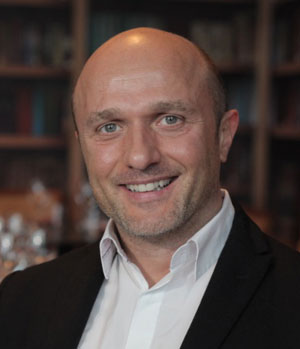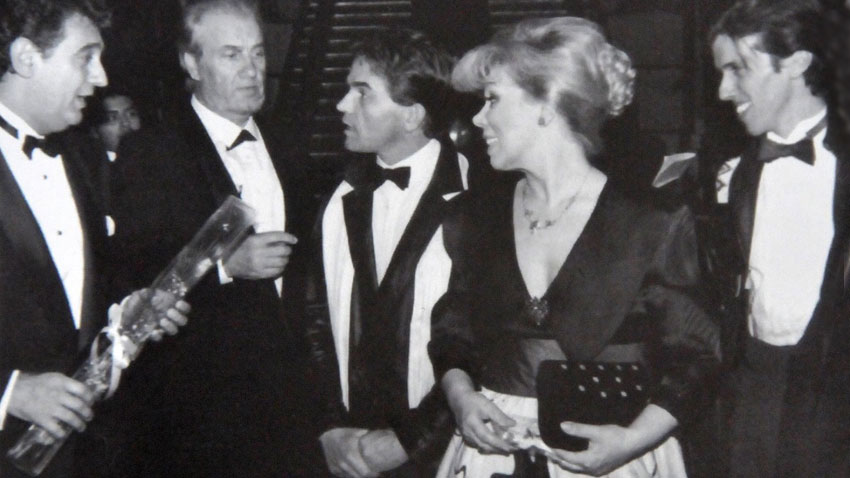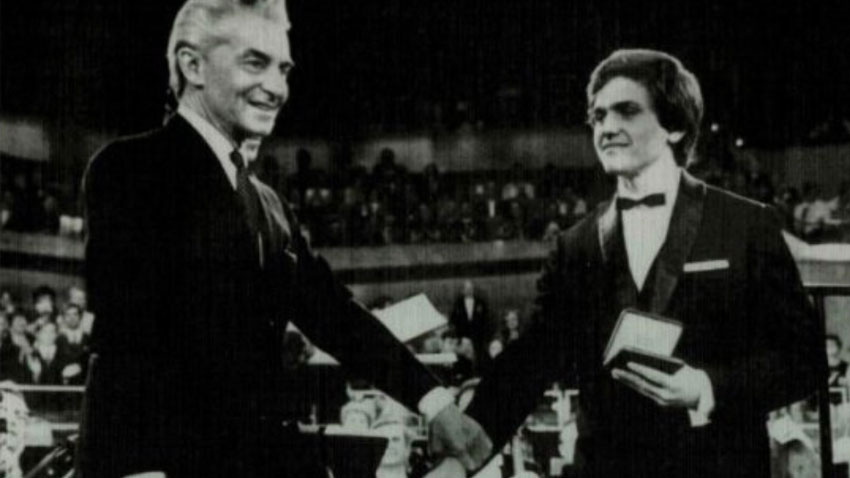He stood on stage humbled, bringing palms to prayer. And the orchestra transformed into an altar to which he offered sacrifice in order to be enlightened one more time.
“Music. Put the music on.” This is what Emil Tchakarov said in the hospital room before he left this word. And the last request froze for a moment before the tape recorder caught it as the maestro confessed the meaning of all of it, in a single word.
This intimate moment in the life of Emil Chakarov is shown in the film "Last Concert" by Georgi Toshev. It shows interviews with world musicians, unknown before concert videos, as well as voices from the archives, and casts light on the unusual fate of the famous Bulgarian conductor, which raised him to the stars but did not spare him the grim anguish of rejection and loneliness.
 “This film has the task of reminding who this universal talent was - Karajan's best student, the man whose career was taken care of by the manager of Maria Callas,” Georgi Toshev tells us. “Emil Tchakarov dreamed of reaching the big stage and when he achieved it, he returned to this country to create the New Year's Music Festival, which is still inspired by his legacy. Bringing Maestro Herbert von Karajan, the Berlin Philharmonic Orchestra, Mirella Freni and the world's greatest artists to perform in socialist Bulgaria could only be done by a person with talent and contacts in the free world. He was respected by kings, queens, and billionaires, and his gift was so strong and magnetic that there were no barriers to him. His career, however, had a price - that of loneliness, disappointment, disapproval in his own country, and leaving this world at the age of 43, but leaving it with dignity.”
“This film has the task of reminding who this universal talent was - Karajan's best student, the man whose career was taken care of by the manager of Maria Callas,” Georgi Toshev tells us. “Emil Tchakarov dreamed of reaching the big stage and when he achieved it, he returned to this country to create the New Year's Music Festival, which is still inspired by his legacy. Bringing Maestro Herbert von Karajan, the Berlin Philharmonic Orchestra, Mirella Freni and the world's greatest artists to perform in socialist Bulgaria could only be done by a person with talent and contacts in the free world. He was respected by kings, queens, and billionaires, and his gift was so strong and magnetic that there were no barriers to him. His career, however, had a price - that of loneliness, disappointment, disapproval in his own country, and leaving this world at the age of 43, but leaving it with dignity.”

At the age of six, Emil Chakarov was declared a prodigy and music accompanied him throughout his life - from the first violin lessons in his native Burgas, through winning the International Competition for Conductors of Herbert von Karajan in West Berlin, to the biggest opera theaters and orchestras across the world that opened doors for the brilliant maestro. In the era of Karajan himself and the exceptional Muti, Abado, Bernstein, Ozawa, Chelebidaki, the Bulgarian conductor managed to find his place, winning admiration and respect with his individual style. But first of all, he had to win his worst battle - to break through without protection in the music world in his own country, relying solely on his talent.

“It is a matter of focus and determination,” Georgi Toshev says. “His acquaintances remember how he lived in a cellar in Sofia cellar and washed with icy-cold water because he did not have other options. However, the confidence that he would succeed did not leave him. There is a story how he once walked many kilometers after hearing on the radio an orchestra whose conductor was not announced. He went to the radio on foot because he had no money for a bus to find out that the conductor was Karajan and to make sure he would one day become like him.”
As a person juggling with two distinctly different worlds during the Iron Curtain, he repeatedly attracted the attention of State Security. Its officers, however, failed to recruit him because, as the author of the film says, Emil Tchakarov’s talent fully matched his morality. Today, however, the conductor, who would have been 70 years old, remains in oblivion in his homeland - no street, cultural institution, or even his own festival, bears his name. There is no memorial plaque or museum dedicated to him, and his records collect dust somewhere. But the world respects geniuses. When famous Sonya Yoncheva asked to listen to the greatest recording of a Russian opera ever, Sony Company gave her a recording made under the baton of Bulgarian Emil Tchakarov.
English: Alexander Markov
Photos: archiveThe Bulgarian Minister of Culture Marian Bachev and Vice President of Bulgaria Iliana Iotova opened the Bulgarian stand at the world-famous London Book Fair – 2025. Bulgaria’s second consecutive participation in the prestigious forum is being carried..
Bulgarian women artists in Chicago are preparing their fifth annual exhibition entitled "Ladies Turn". The opening is scheduled for 23 March at 832 Lee St, Des Plaines, IL, United States, Illinois 60016. The event is organised by the "Little Bulgaria"..
On March 8, Seojun Kim from South Korea, the winner of the first prize in the men's category at the 2024 International Ballet Competition "Sara-Nora Prima", will perform on the stage of the Stara Zagora State Opera . He will play Prince Désiré..
The Bulgarian Minister of Culture Marian Bachev and Vice President of Bulgaria Iliana Iotova opened the Bulgarian stand at the world-famous London Book..

+359 2 9336 661
